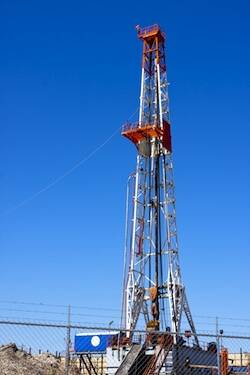A classic conflict between science in the public interest and science for private profit appears likely as the U.S. Environmental Protection Agency prepares for a comprehensive study of the ecological hazards of the method of extracting natural gas called hydrofracturing. “Fracking,” as the practice is informally known, is a horizontal drilling procedure that includes the injection of millions of gallons of pressurized water, sand and industrial solvents into the earth to release pockets of natural gas from shale that has trapped it for millennia. Even as proponents of expanding natural gas drilling—particularly in the Marcellus shale formation under Pennsylvania and New York—protest that the procedure is safe, more evidence has been emerging that this may not be so.
A gas rush in Pennsylvania has resulted in hundreds of new fracking sites, but many people at the surface are not sharing in the wealth being generated by the natural gas boom. Instead, they are dealing with illnesses and contaminated water supplies they attribute to the chemicals, gases and other contaminants churned up by fracking. Local residents say fracking has brought a variety of ailments for well-water users, including headaches, dizziness, memory loss, gastrointestinal complaints and worse, and serious injury to cattle that have drunk waste water from drill sites. Long-term health effects are uncertain. Some of the chemicals injected into the earth to “loosen up” shale are known carcinogens and endocrine-system disruptors.
Other well-water users say leaking gases from improperly installed or maintained drill-site casing has resulted in exploding wells and flaming water faucets. In Arkansas, two natural gas producers voluntarily agreed to cease operations as evidence mounts that the disposal of vast quantities of fracking water by injecting it back into the ground has triggered a “swarm” of earthquakes in the state.
E.P.A. scientists are being pressured by industry lobbyists and politicians indebted to natural gas producers to withhold evidence of possible harm from fracking or simply to refrain from fully investigating the many ways the technique could produce an ecologically damaging or carcinogenic result. In fact, over the last 25 years a number of critical E.P.A. findings on fracking have been kept hidden or proposed studies restricted to keep potentially critical findings from being disseminated. A 1987 determination that the practice was indeed hazardous and required strict regulation was simply dropped from an E.P.A. report under pressure from the Reagan administration; and last year the E.P.A., bowing again to political pressure, abandoned a call for a moratorium on fracking in the New York City watershed. But what is not known about fracking can indeed harm the environment and local communities. Among areas of greatest concern are how to treat and dispose of, or safely reuse, the millions of gallons of contaminated water fracking produces. At risk is the drinking water of millions of U.S. residents, which could become contaminated with solvents, salts and radioactive debris produced by fracking at well water sites. Contaminated water can also pass through inadequate treatment processes and then be dumped into vital waterways.
Natural gas is touted as a responsible energy option during a time of anxiety about climate change and spiking international oil costs and heightened awareness of the risks from nuclear power; and indeed the United States has reserves of natural gas in abundance. But is this presumably cheap alternative energy source really so inexpensive? Or is the current generation of energy users merely passing on the true cost of natural gas drilling to their children and grandchildren? Someone will have to pay to mitigate environmental damages left behind by fracking; someone must pay to clean the water and restore the drill sites and to heal the people whose land and bodies are contaminated by fracking.
Good stewardship of creation and the call to protect human dignity sound like weak concerns—to some—when the hard challenges of the current energy dilemma are brought up. The public can put aside moral obligations to the people and the property left behind when the natural gas boom ends and can ignore the ethical issues involved in one generation’s squandering the fossil fuel wealth of creation in a few short decades. But can the nation not at least agree that the science should be objective and trustworthy when looking into a practice with such complex repercussions for today and for the future? The E.P.A. should produce a thorough and unbiased analysis of the dangers and economic threats of this emerging industry. That way when we citizens make decisions and commitments about energy production and use, we will clearly understand what we are paying for now and what we are costing the future.









There is a 'base load' requirement baked into the cake of every home, office, factory, school, hospital, etc. which is absolutely necessary and has a number to it. And up to now, that energy load has been provided thanks to coal, gas, nuclear, and hydroelectric dams. Now, if coal, oil, natural gas and nuclear are too dangerous for you, that's fine, but the base load is not going away.... we'd need miles of solar panels (and millions of tons of batteries) to make up for nuke's alone.
Moralizing - in the sense of pointing out an evil - is good in some circumstances, but when it becomes a common, frequently used tool, it's blunted. There are very few obvious evils in life. Mostly, bad things happen to good people because of a conjunction of non-evil circumstances.